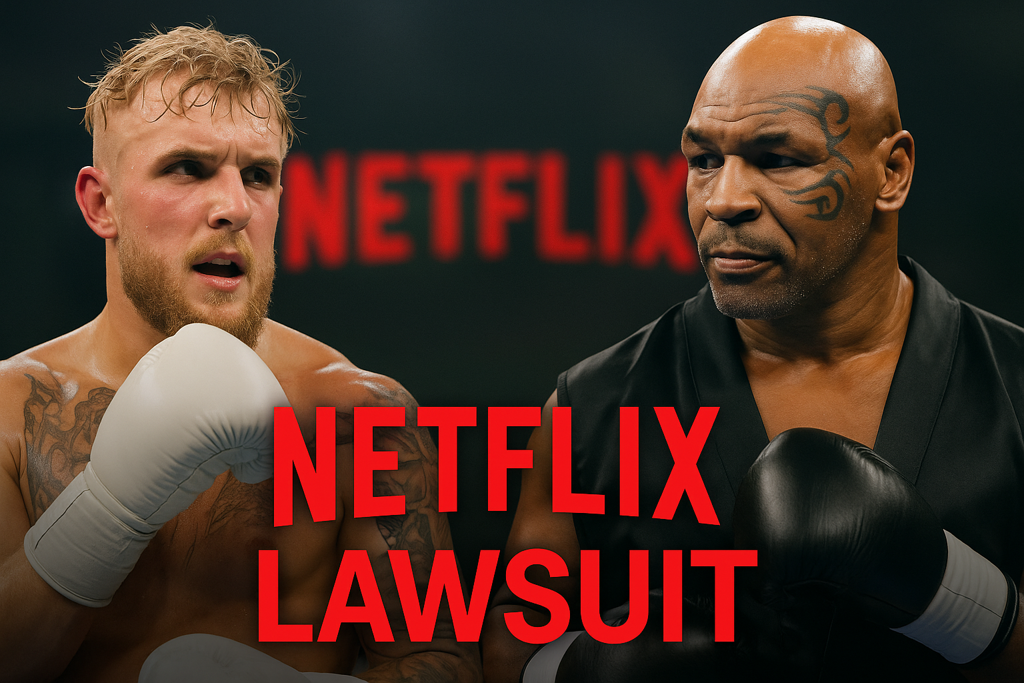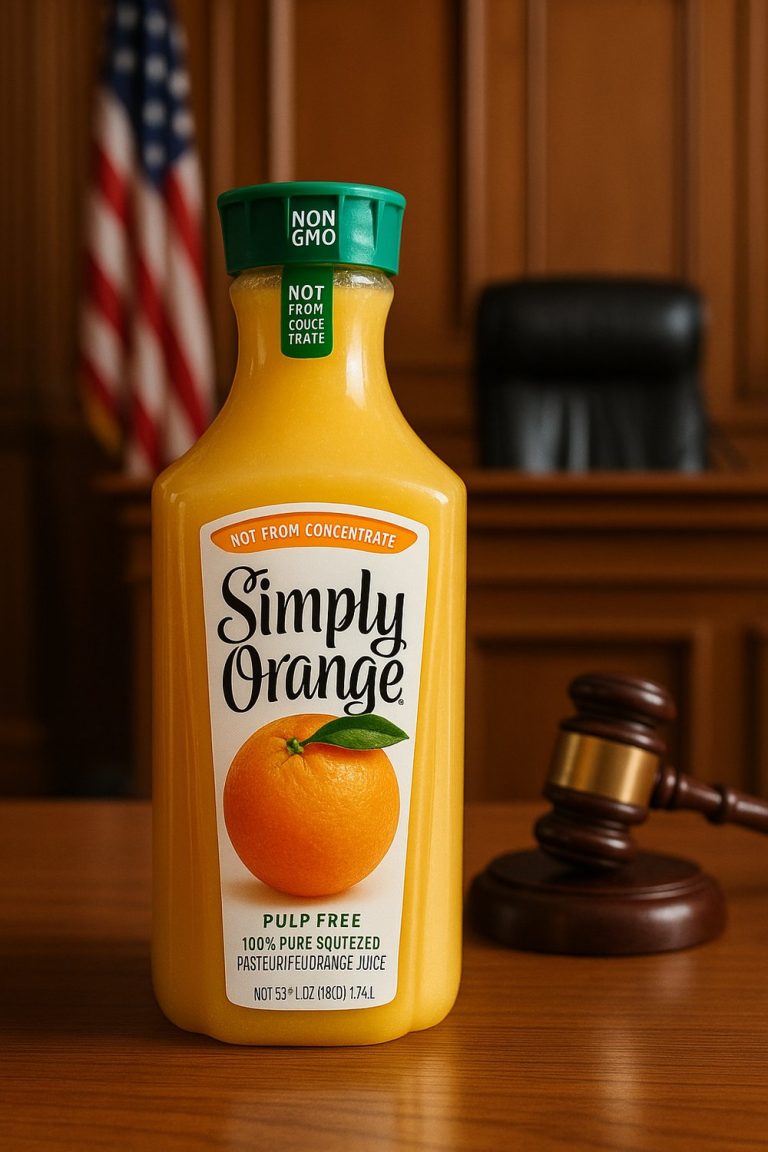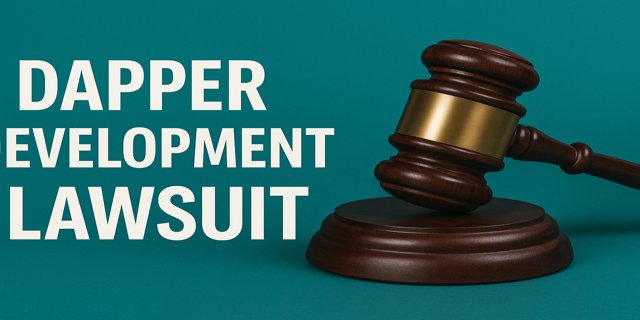If you tried to watch the Mike Tyson vs. Jake Paul fight on Netflix and ended up staring at a loading screen, you’re not alone. Many subscribers paid for access and got buffering, blackouts, or no stream at all. Now, the Netflix Tyson Paul Fight Lawsuit is pushing back. People are taking legal action. They’re asking—if Netflix couldn’t deliver what you paid for, do you deserve a refund or more?
This fight wasn’t just about two boxers in a ring. It’s about your money, your expectations, and your right to get what you were promised. The class action doesn’t just cover tech issues. It also raises deeper issues around trust, transparency, and streaming reliability. If you’ve ever relied on a platform to deliver and felt let down, this story matters to you. Let’s walk through what happened and what it could mean for your streaming future.
Event Overview: Tyson Versus Paul Fought Live
Netflix broadcast the fight on November 15, 2024. Tyson and Paul battled at AT&T Stadium. Paul won via unanimous vote in eight short rounds. More than 70,000 attended in person. Netflix claimed a peak of 65 million concurrent streams. It is estimated that 60 million households worldwide watched, and it was touted as its largest live event, with heavy marketing. Moreover, it hoped to attract sports fans, aimed to test streaming capacity and pledged a smooth experience. Some viewers felt excited from promotion. Others expected flawless delivery. Many timed devices and network checks in advance. All prepared for a record broadcast.
Streaming Disaster That Sparked Legal Action
Viewers reported severe buffering during the stream. Some lost access entirely mid-fight. Users posted on social platforms endlessly. They described the event as “unwatchable.” Down Detector registered close to 85,000 outage alerts. The lawsuit calls Netflix “woefully ill‑prepared.” It notes Netflix had preexisting streaming warnings and claims no adequate tech upgrades occurred. Also, it asserts the company misled subscribers, argues Netflix promised but failed and charges breach of contract and deceptive trade actions. Complaint says Netflix billed full subscription despite failure. It states viewers lost real entertainment time and frames the issue in simple financial terms: you paid, you did not watch. It highlights subscriber betrayal.
Class Status, Court Venue, and Claims
Ronald “Blue” Denton filed in Hillsborough County, Florida. He wants class status to include all affected. He bases claims on Florida consumer and contract laws. Also, he demands at least $50 million total damages. He seeks actual, nominal, and consequential relief and requests injunctive orders and jury trial. Moreover, he names Netflix as defendant, he cites failure to deliver paid services and alleges harm to thousands. Furthermore, he highlights a subclass of Florida subscribers and notes Netflix ignored previous issues. He describes the stream as glitch‑ridden, not dependable, demands accountability in court and opens the channel for refunds and additional recovery.
Timeline of Tyson–Paul Fight & Related Lawsuit
| Date / Period | Stage / Event | Description / Significance |
|---|---|---|
| November 15, 2024 | Fight Night – Tyson vs. Paul Live Broadcast | The fight between Jake Paul and Mike Tyson was streamed globally on Netflix. |
| November 15, 2024 (during broadcast) | Streaming Issues Reported | Viewers began reporting widespread buffering, glitches, and outages during the live stream. |
| November 16, 2024 | Public Acknowledgement of Streaming Problems | Media outlets and public forums documented the failures; the streaming glitch became a major public controversy. |
| Around November 20, 2024 | Lawsuit Filed — Class Action Complaint | A lawsuit was filed by a Florida resident (on behalf of affected viewers) against Netflix, alleging breach of contract and failure to deliver promised service. |
| November 23, 2024 | Injury Allegations and Class-Action Demand Publicized | Reports indicate the class action seeks substantial damages (reportedly up to US$50M) for viewers impacted by the streaming failures. |
| Post-filing Period (2024 – ongoing) | Legal Proceedings & Media Coverage | The lawsuit and its implications — contractual obligations, broadcasting reliability, consumer rights — began drawing attention from legal analysts and media. |
Practical Impact for Subscribers
You pay Netflix monthly, expect promised content and may have missed critical rounds. Moreover, you may feel cheated and can file to join class suit. You may qualify for a refund or more compensation and can track your usage logs. However, you may get notices if you watched and experienced glitches. You may review your bank or billing statements and contact Netflix for credits. This case may influence how you evaluate future live events. It may push streaming providers to invest in stronger infrastructure. You may become more cautious before jumping into live streams, learn from this case and may adjust how you view subscription value.
Netflix Response and Silence
Netflix issued no public apology. It confirmed audience numbers, kept comment minimal and noted the peak and overall viewers. Furthermore, it did not publicize outage data and avoided addressing buffering claims. It has not offered refunds. It promoted upcoming events like NFL and WWE broadcasts and told partners private fixes were underway. Moreover, it avoided legal admission, reviewed stream architecture and sought partners reassurance behind closed doors. It accepted viewership success metrics and kept narrative forward‑looking. It did not concede glitch accountability. You may expect future statements or settlements and wonder when Netflix will face pressure. It watches lawsuits without visible remorse.
Intellectual Property Claim by Jake Paul
Jake Paul claims Netflix used his ideas without permission. He alleges the contract included intellectual property rights and says Netflix breached that agreement. Also, he claims the company used his concepts or promotional content without credit. He says this caused damage to his brand and revenue. His lawyer filed those claims separately. Also, Jake Paul cites misuse of his creative content. He demands compensation for unauthorized use and argues the rights issue is tied to the live event deal. This layer runs in parallel to the class action. It adds creative rights dispute into the mix, and it could influence how Netflix handles future influencer deals. It sets a warning about IP in entertainment deals.
Parallel Suit: Tyson Faces Contract Case
Medier, a promoter in Cyprus, sued Tyson in London’s High Court. They claim Tyson broke a promotion deal. The agreement began January. Tyson terminated in March, same day Netflix fight plans surfaced. Medier seeks €1.46 million in losses. They request return of €800,000 in fees and €729,000 in wasted promotion costs. Tyson’s firm Tyrannic defends termination. They argue Medier breached terms first and say promotional materials went out without Tyson’s approval. Also, they state contract ended lawfully to protect Tyson’s brand. Case remains unresolved. It may shape athlete‑sponsor obligations. Outcome may affect future deals involving celebrity fighters.
Key Issues in the Tyson–Paul Streaming Lawsuit
| Legal Issue Area | What It Involves | Why It Matters |
|---|---|---|
| Contractual Obligations | Clauses governing promotion, fighter commitments, and event delivery | Helps determine whether promises made by either party were breached |
| Media Rights & Distribution | Ownership and control of broadcast rights for the event | Impacts revenue, exclusivity, and platform responsibilities |
| Promotional Requirements | Agreements on marketing efforts, fighter appearances, and public announcements | Affects audience reach, ticket sales, and viewership projections |
| Event Readiness & Athlete Participation | Disputes about preparation, training conditions, or fight delays | Can influence whether either side failed to meet expectations tied to performance |
| Financial Arrangements | Revenue sharing, payouts, production costs, and reimbursement claims | Central to assessing damages and monetary liability |
| Negotiation Timeline | Communications, amendments, and changes leading up to the event | Provides context for misunderstandings or unmet expectations |
Audience Reaction and Fight Quality Questions
Fans complained about more than just tech issues. They questioned the fight’s authenticity. Paul admitted pulling punches for show. That statement raised eyebrows. Some online users claimed the match felt fixed. One comment read:
“They clearly agreed who would win and how long it should go.” (Judicial Ocean, https://www.12onyourside.com, The Economic Times, Spectrum Local News, AP News, Reddit)
Critics noted Tyson threw just 97 punches and landed under 20 percent. That statistic drew criticism from boxing figures like Canelo Alvarez and Terence Crawford. (Talksport)
That view added to viewer disappointment. Some legal experts say a scripted feel could open fraud claims. Trust in the event eroded quickly. Fans may demand more transparency in celebrity bouts. The perception may linger separately from litigation.
What Happens Next?
Courts will rule on class certification in Florida. You may receive notices if eligible. Medier vs Tyson proceeds in London. Netflix may reply or settle. Jake Paul’s IP claim may lead to independent proceedings. Netflix prepares future live events under scrutiny. Docket updates may appear publicly or via mail. You still have time to join or opt out. Netflix might announce streaming upgrades. It may publish infrastructure fixes. Courts may define obligations for live stream quality. They may clarify social media deal rights. They may confirm rights to creative property use between creators and platforms.
Key Takeaways You Can Use
You see your streaming experience matters. You can archive your viewing logs and may join the class action. Also, you can assert consumer or IP rights. You may submit complaints or contact legal counsel. Moreover, you may follow docket entries online and may expect Netflix to improve live event streaming. Additionally, you can monitor athlete sponsorship deals and may check contract terms when influencers partner with platforms. However, you can compare this case with past streaming mishaps and may evaluate your trust in subscription services resuming live events. You can watch media for announcements and decide how much you rely on big‑budget live streams in future.
Conclusion
The Netflix Tyson Paul Fight Lawsuit is more than just legal paperwork—it’s about your experience as a paying subscriber. You expected a smooth, exciting stream. Instead, you got glitches, delays, or silence. Now, others are stepping forward, asking courts to hold Netflix accountable. If you faced the same issue, you may be part of the case. You might be entitled to compensation.
You should keep an eye on this lawsuit. It may lead to real changes in how companies handle live content. It may set new standards for streaming quality, consumer rights, and influencer contracts. You’ve got the right to know what you’re paying for—and the power to demand better. This fight wasn’t just in the ring. It’s happening now in courtrooms and across the internet. Your voice and your experience count. If you were affected, speak up, stay informed, and make your streaming time worth it.
Ayesha Awais is a content writer for JudicialNexus.com, covering accident reports, injury-related news, lawsuits, and public safety updates. All content is informational in nature and based on publicly available sources.




